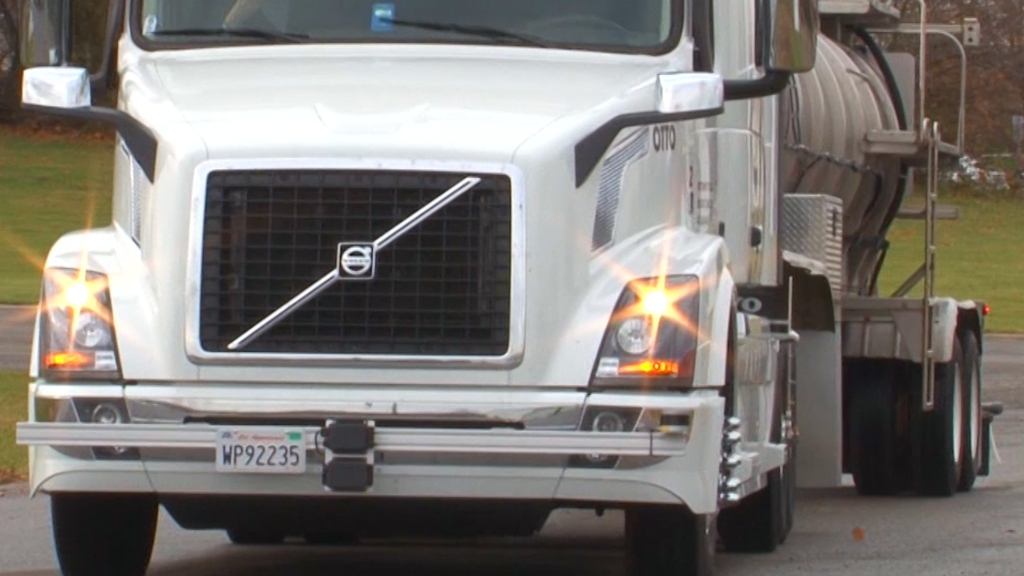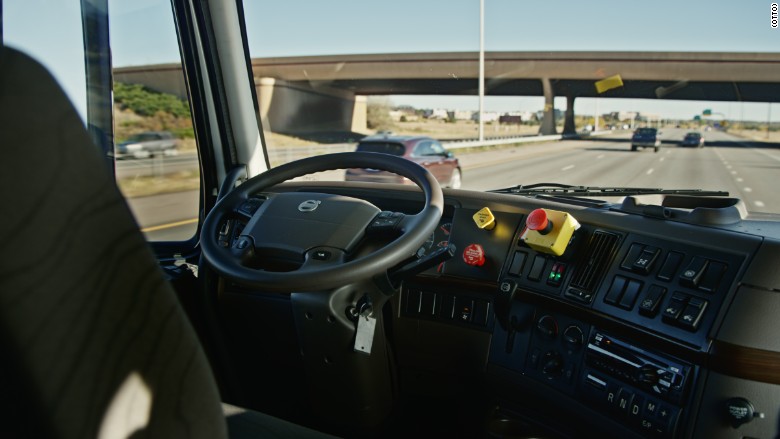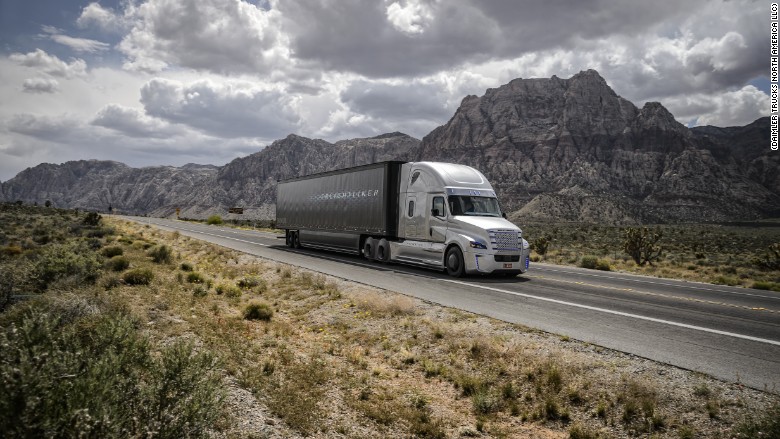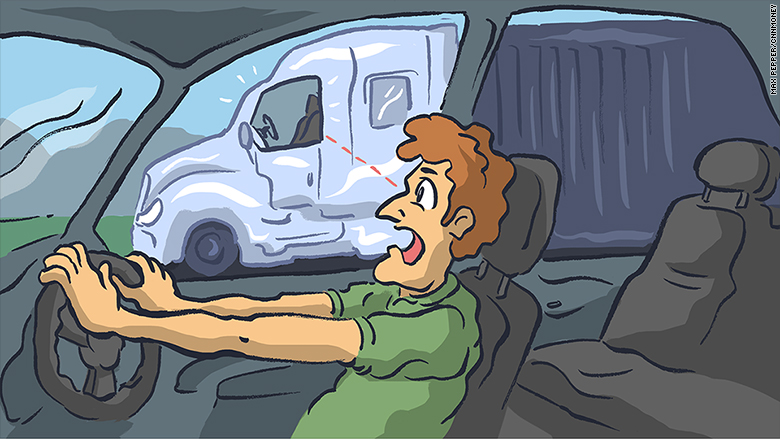
Dayton Mayor Nan Whaley is used to seeing bewildered expressions when she mentions self-driving vehicles.
At neighborhood meetings this fall, Whaley made a habit of bringing up autonomous vehicles and the huge changes they would bring to Ohio. No one ever asked Whaley followup questions; they just stared in silence.
"When you're talking about people who just barely got through the change in manufacturing that happened in the Midwest, autonomous vehicles are so wild," said Whaley, who recalled how her father watched assembly line jobs steadily evaporate during his career. "They're like, are you kidding me?"
Ohio has the nation's second highest concentration of truck drivers -- over 70,000 -- and long-haul jobs are widely seen to be on the chopping block as autonomous vehicles emerge.

Last week, Ohio Governor John Kasich announced a $15 million investment to turn a 35-mile stretch of a state highway into a testing ground for autonomous vehicles. Taxpayer dollars will fund research that threatens one of the five most common jobs in the state.
Leaders don't believe they have any other choice and are focused on the positives.
"You can't stop progress," Kasich said at a news conference last week in Dublin, Ohio.
He pointed to the potential safety improvements with autonomous vehicles, which are expected to dramatically reduce traffic crashes. Truck drivers who trade their steering wheel for a computer will be making more money too, he added.
Related: Trump's populism is only the beginning. Here come the robots.
The test stretch of Route 33 is located outside Columbus -- the state's capital and largest city -- and its mayor, Andrew Ginther, believes the project positions central Ohio for more business and jobs in transportation and automotive research. Central Ohio is a logistics hub -- it's only a day's drive from 60% of the United States.

So far, no Ohio businesses are actually developing autonomous vehicles.
Otto, Uber's self-driving truck team, tested on two Ohio roads last week. But its headquarters remain outside the state.
Concerned about the technology, Whaley is resigned to them becoming a reality and believes it would be un-American to not embrace technology.
Youngstown Mayor John McNally doesn't see a way to avoid the upheaval of autonomy either. He fears many Ohioans will be left behind as technology causes another industry to shrink.
"We have people here who like to make things, who like to deliver things, who like to build things," McNally said. "The more they hear about the speed at which technology is taking over, or has the capacity to, that makes them nervous. It make them scared."
But some trucking industry leaders are unconcerned about the changes and don't expect them to be massively disruptive.
The American Trucking Association chairman Kevin Burch told CNN he applauds Ohio's investment in autonomous trucks. The Ohio Trucking Association president agreed, noting he's not worried about job losses. They both point to a shortage of human drivers and see robotic trucks as helpful.
They expect that autonomous trucks will take decades to roll out and require a human to still be in the truck.
"I've had drivers come in and say, 'Are we in a dead industry?' Heavens no," Burch said.
Related: How rural America is missing out on the modern American dream
Some people in the industry expect that drivers will transition from driving a single truck, to monitoring multiple trucks at once. Drivers would sit in the back of a cab, or in an office, and use a computer to track vehicles. But that may not be good for all drivers.
Dara Perrin, president at Interstate Freight Carriers in Solon, Ohio, has seen her drivers struggle with converting from handwritten to digital logs of their journeys.
"For me to say now, 'Oh you're now going to get in the truck and you don't have to worry about anything, just work the computer,' that's pretty difficult," Perrin said. "Drivers are just kind of simple -- 'I drive, I get your stuff there and that's it.'"
The trucking industry and Ohio's leaders are still in the process of understanding the nature of autonomous vehicles, and exactly what impact the trucks will have.
"It is hard to see such a system working without all vehicles being automated," said Todd Spencer, vice president of the Owner-Operator Independent Drivers Association, which represents 158,000 drivers. The group has yet to take a stance on autonomous trucks.

But many tech and auto companies are spending billions to develop a vehicle that could do just what Spencer believes to be near impossible. Google's (GOOGL) fleet of test cars have covered more than 2 million miles autonomously, driving amidst vehicles that aren't automated.
The technology isn't perfect yet and remains unproven on conditions like snow and ice.
"We're always going to need truck drivers," said Thomas Balzer, president and CEO of Ohio Trucking Association.
He's quick to note the Google car has had a crash, and there's still a psychological barrier for consumers to overcome.
"Is the American public ready for a driverless truck, and [that] in the times of an emergency, there's no one there to take hold of that wheel?" Balzer said. "I don't know if people are ready for that."

